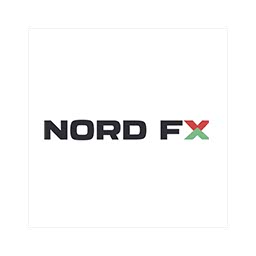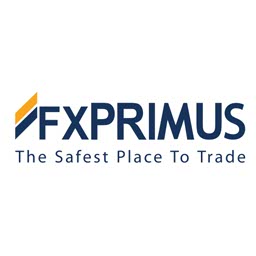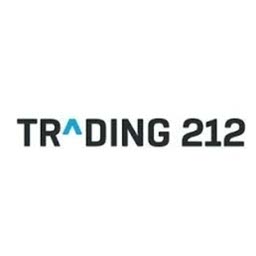Best Singapore High Leverage CFD Brokers
Welcome to our comprehensive guide on finding the best high-leverage CFD brokers in Singapore while safeguarding your consumer rights. In this era of financial opportunity, making informed choices is paramount. We'll equip you with the knowledge to spot trustworthy brokers and avoid potential pitfalls. As a vigilant consumer rights advocate, I'll walk you through crucial factors, from regulatory compliance to transparency, ensuring your investments are secure.
In Singapore, the CFD (Contract for Difference) leverage limits are subject to stringent regulatory oversight by the Monetary Authority of Singapore (MAS), Forex CFD max leverage is 20:1 in Singapore. The MAS, as the chief regulatory authority, imposes a cap on the maximum allowable leverage for CFD trading activities. This regulatory body meticulously assesses the financial markets to determine the optimal balance between risk and opportunity.
The leverage limits are essentially the prescribed ratios of borrowed capital to the trader's own funds. MAS has implemented prudent restrictions, mandating lower leverage ratios in an effort to mitigate excessive risk-taking. Such prudent oversight fosters a trading environment that prioritizes the protection of retail investors, ensuring that they do not overextend themselves, thereby promoting financial stability within Singapore's CFD trading landscape.
Best Singapore High Leverage CFD Brokers Table of Contents
- What are the key factors to consider when selecting high leverage CFD brokers in Singapore for trading CFDs?
- How do CFD brokers in Singapore differ in terms of leverage options for retail investor accounts?
- What regulatory measures are in place to ensure the safety of retail investor accounts when trading CFDs with brokers in Singapore?
- How does the range of available assets for trading compare among top CFD brokers in Singapore, especially when it comes to forex trading?
- What are the margin requirements and leverage limits imposed by high leverage CFD brokers in Singapore?
- Are there any specific fees or commissions associated with trading CFDs with Singaporean CFD brokers, and how do they impact retail investors?
- What risk management tools and educational resources do the best CFD brokers in Singapore offer to retail investors?
- How does the customer support and service quality of Singaporean CFD brokers compare, especially for retail traders new to CFD trading?
- Are there any restrictions or limitations for retail investors when trading highly leveraged CFDs with Singapore-based brokers?
- What is the minimum deposit requirement for opening a retail investor account with the top high leverage CFD brokers in Singapore?
- Can you explain the differences in trading platforms and technology offered by various CFD brokers in Singapore for forex trading?
- Best Singapore High Leverage CFD Brokers List Compared

In the bustling world of financial markets, finding the best high leverage CFD brokers in Singapore is paramount for traders seeking lucrative opportunities. As trading forex and other CFD financial instruments become increasingly popular, choosing the best CFD broker plays a pivotal role. These brokers offer an array of proprietary and advanced trading platforms, enabling traders to access online platforms with low fees. However, navigating this high risk is essential, as many CFD traders lose money. This introduction delves into the realm of high-leverage trading platforms, where the importance of regulated brokerages, interactive features, and the option of demo accounts to start trading cannot be overstated.
What are the key factors to consider when selecting high leverage CFD brokers in Singapore for trading CFDs?
Selecting the right high-leverage CFD broker in Singapore for trading CFDs involves careful consideration of several key factors:
-
Regulation and Compliance: Ensure Singapore's regulatory authority regulates the broker, the Monetary Authority of Singapore (MAS), to guarantee the safety of your funds and the integrity of the trading platform.
-
Leverage Options: Evaluate the range of leverage options available for retail investor accounts, considering your risk tolerance and trading strategy.
-
Asset Variety: Assess the diversity of assets offered for trading, including currency pairs, stocks, indices, and commodities, especially if you plan to trade Forex CFDs.
-
Margin Requirements: Understand the broker's margin requirements and how they align with your risk management strategy.
-
Fees and Commissions: Scrutinize the fee structure, including spreads, overnight financing costs, and any other commissions, to determine how they may impact your profitability.
-
Risk Management Tools: Investigate the risk management tools provided by the broker, such as stop-loss orders and guaranteed stop-loss orders, to protect your positions.
-
Educational Resources: Check if the broker offers educational resources and tools to assist both novice and experienced traders in improving their trading skills.
-
Customer Support: Assess the quality and availability of customer support, as responsive support can be crucial, especially for new CFD traders.
-
Trading Restrictions: Be aware of any restrictions or limitations imposed on retail investors, such as maximum position sizes or trading hours.
-
Minimum Deposit: Determine the minimum deposit requirement to open a retail investor account and ensure it aligns with your budget.
-
Trading Platforms: Explore the trading platforms and technology provided, as a user-friendly and efficient platform can greatly enhance your trading experience.
-
Execution Speed: Compare execution speeds among brokers, as faster execution can be advantageous, particularly for high-frequency traders.
-
Reputation: Research the track record and reputation of the broker, including user reviews and ratings, to gauge their reliability.
-
Recent Regulatory Changes: Stay informed about any recent regulatory developments or changes in Singapore that may impact CFD trading with brokers.
-
Additional Features: Consider any additional features offered, such as direct market access, segregated accounts, and negative balance protection, to enhance your trading safety and convenience.
By carefully considering these factors, you can make an informed decision when selecting the best high-leverage CFD broker in Singapore for your CFD trading needs.
How do CFD brokers in Singapore differ in terms of leverage options for retail investor accounts?
CFD brokers in Singapore vary in their approach to leverage options for retail investor accounts, and it's crucial to understand these differences:
-
Leverage Ratios: Brokers may offer different leverage ratios, such as 50:1, 100:1, or 500:1. The choice depends on the broker's risk tolerance and regulatory compliance.
-
Asset-Specific Leverage: Some brokers provide varying leverage levels for different asset classes. For instance, Forex CFDs might have higher leverage compared to stocks or commodities.
-
Risk Assessment: Brokers often assess a trader's risk profile and experience level. Novice traders may be offered lower leverage, while experienced traders could access higher ratios.
-
Margin Requirements: Leverage is closely linked to margin requirements. Brokers with higher leverage may have stricter margin requirements to mitigate risk.
-
Regulatory Compliance: Leverage options are often influenced by local regulations. The MAS regulates leverage limits in Singapore, which brokers must adhere to.
-
Risk Warnings: Responsible brokers educate traders about the risks associated with high leverage and provide risk warnings. Some brokers may impose stricter risk assessment procedures.
-
Flexibility: Assess whether brokers allow you to adjust leverage settings within certain limits, providing more control over your trading strategy.
-
Leverage Changes: Consider how brokers handle changes in leverage, especially during market events. Some brokers may limit leverage adjustments during volatile periods.
-
Educational Resources: Brokers should offer educational resources on leverage and risk management to ensure traders understand the implications.
-
Communication: Check if the broker communicates leverage changes and margin requirements clearly and promptly to avoid surprises.
Understanding these differences in leverage options is crucial for retail investors as it directly impacts risk exposure and trading strategy effectiveness.
What regulatory measures are in place to ensure the safety of retail investor accounts when trading CFDs with brokers in Singapore?
Singapore places a strong emphasis on investor protection, and the following regulatory measures are in place to ensure the safety of retail investor accounts when trading CFDs with brokers:
-
MAS Regulation: The Monetary Authority of Singapore (MAS) regulates and supervises CFD brokers to ensure they comply with strict financial and operational standards.
-
Client Money Safeguarding: Brokers are required to segregate client funds from their operational funds, safeguarding retail investors' money in separate accounts.
-
Risk Warnings: Brokers are mandated to provide risk warnings to retail investors, highlighting the inherent risks of trading CFDs, especially with high leverage.
-
Leverage Limits: The MAS imposes leverage limits on CFD trading, which prevent excessive risk-taking by retail investors. For example, major forex pairs have a 50:1 leverage limit.
-
Negative Balance Protection: Some brokers offer negative balance protection to ensure that retail traders cannot lose more than their initial investment.
-
Regulatory Reporting: Brokers must regularly report their financial status and activities to MAS, ensuring transparency and accountability.
-
Complaint Handling: Regulatory authorities like MAS oversee the handling of investor complaints, ensuring fair resolution.
-
Educational Requirements: Brokers are required to provide educational materials and risk assessment tools to help retail investors make informed decisions.
-
Professional Standards: Financial professionals employed by brokers are held to high standards of conduct and competence.
-
Market Surveillance: MAS conducts market surveillance to detect and prevent market manipulation or abuse, which can harm retail investors.
Retail investors should prioritize trading with MAS-regulated brokers to benefit from these protective measures and ensure the safety of their accounts.
How does the range of available assets for trading compare among top CFD brokers in Singapore, especially when it comes to forex trading?
The range of available assets for trading can vary among top CFD brokers in Singapore, especially concerning forex trading:
-
Currency Pairs: Most CFD brokers offer the most popular major currencies, minor currencies, and less traded higher risk exotic pairs. Some brokers in Singapore may have more extensive offerings than others.
-
Stock CFDs: Some brokers also provide stock CFDs, allowing traders to speculate on the price movements of individual company shares listed on global stock exchanges like the London Stock Exchange.
-
Indices: Top CFD brokers commonly offer CFDs on major stock indices, such as the S&P 500, FTSE 100, and DAX. The variety of available indices may differ between brokers.
-
Commodities: Traders interested in commodities can find CFDs on assets like gold, oil, and agricultural products. The selection of commodities can vary among brokers.
-
Cryptocurrencies: While not as prevalent, some brokers allow CFDs on major cryptocurrencies where allowed.
-
Bonds and Interest Rates: A few brokers provide CFDs on bonds and interest rates, allowing traders to speculate on changes in these financial instruments.
-
ETFs: Certain brokers offer CFDs on exchange-traded Funds (ETFs), providing exposure to various asset classes and sectors.
-
Options and Futures: In some cases, brokers offer CFDs on options and futures contracts, broadening the range of tradable assets.
-
Customized Portfolios: A few brokers enable traders to create customized portfolios by combining different CFDs and assets, enhancing trading flexibility.
When selecting a CFD broker for forex trading in Singapore, consider your preferred asset classes and ensure that the broker offers a diverse range that aligns with your trading strategy and goals.
What are the margin requirements and leverage limits imposed by high leverage CFD brokers in Singapore?
Margin requirements and leverage limits are essential considerations when trading CFDs with high-leverage brokers in Singapore:
-
Margin Levels: High-leverage CFD brokers typically require a small initial margin deposit to open a position. Margin levels can vary between brokers, so it's crucial to understand the specific margin requirements for the assets you intend to trade.
-
Leverage Ratios: Leverage limits are set by regulators like the Monetary Authority of Singapore (MAS) and vary depending on the asset class. For example, major forex pairs might have a 50:1 leverage limit, while indices and commodities can have different limits. Brokers must adhere to these regulations.
-
Risk Management: Retail investors should carefully consider the margin requirements and leverage limits, as they directly affect the amount of capital at risk. Higher leverage can amplify both profits and losses, making risk management crucial.
-
Account Type: Some brokers offer different account types with varying leverage options. Retail traders may access lower leverage, while professional or experienced traders might be eligible for higher leverage.
-
Maintenance Margin: Understand the concept of maintenance margin, which is the minimum amount of equity you must maintain in your account to keep positions open. Brokers will issue margin calls if your account balance falls below this level.
-
Overnight Financing Costs: Consider the overnight financing costs associated with leveraged positions held overnight. These costs can impact the overall profitability of your trades.
-
Asset-Specific Leverage: Leverage limits can also be asset-specific. For example, currency pairs may have higher leverage limits than stocks or commodities.
-
Adjustable Leverage: Some brokers offer adjustable leverage settings within regulatory limits, allowing traders to fine-tune their exposure to fit their risk tolerance and strategy.
Understanding margin requirements and leverage limits is critical to managing risk effectively when trading CFDs with high-leverage brokers in Singapore.
Are there any specific fees or commissions associated with trading CFDs with Singaporean CFD brokers, and how do they impact retail investors?
Fees and commissions associated with trading CFDs can significantly impact retail investors, and it's essential to be aware of them:
-
Spread: Most CFD brokers make money through the spread, which is the difference between the bid and ask prices. A wider spread can increase trading costs, affecting profitability.
-
Overnight Financing Costs: Holding leveraged CFD positions overnight can incur financing costs, known as swaps or rollover fees. These fees vary based on the asset and the direction of your trade.
-
Commission on Equities: When trading CFDs on stocks, some brokers charge a commission per trade in addition to the spread. This commission can add to trading costs.
-
Inactivity Fees: Check your brokerages fee structure for inactive accounts in Singapore. if there is no trading activity in the account over a specified period.
-
Withdrawal Fees: Check if the broker charges fees for withdrawals, as these can affect the overall cost of accessing your profits.
-
SGD Currency Conversion Fees: If you trade CFDs denominated in a currency other than your live trading account's base currency like SGD or ISD, currency conversion fees may apply when depositing or withdrawing funds to Singapore Dollar.
-
Platform Fees: While many brokers offer trading platforms for free, others may charge a fee for certain advanced platforms or trading tools.
-
Spread Betting vs. CFDs: Depending on the jurisdiction, there may be tax advantages to trading CFDs over spread betting, as CFD profits may be subject to capital gains tax rather than income tax.
-
Comparing Costs: To assess the impact on retail investors, compare the total trading costs, including spreads, commissions, and overnight financing costs, among different brokers.
Understanding these fees and their potential impact on your trading performance is crucial when choosing a Singaporean CFD broker. It's advisable to select a broker with transparent fee structures that align with your trading strategy and budget.
What risk management tools and educational resources do the best CFD brokers in Singapore offer to retail investors?
The best CFD brokers in Singapore prioritize risk management tools and educational resources to support retail investors:
-
Stop-Loss Orders: Brokers offer stop-loss orders, allowing traders to set predetermined price levels at which a position will automatically close to limit potential losses.
-
Take-Profit Orders: Take-profit orders enable traders to lock in profits by automatically closing positions when a specified profit target is reached.
-
Guaranteed Stop-Loss Orders: Some brokers offer guaranteed stop-loss orders for an additional fee, ensuring that positions will close at the specified level, even in volatile markets.
-
Risk Assessment Tools: Many brokers provide risk assessment tools to help traders gauge their risk tolerance and set appropriate leverage levels and position sizes.
-
Educational Webinars and Courses: The best CFD brokers offer educational webinars, courses, and tutorials on topics like risk management, technical analysis, and trading strategies.
-
Demo Accounts: Demo accounts allow traders to practice with virtual funds, honing their skills and testing strategies without risking real money.
-
Market Analysis: Brokers often provide market analysis, research reports, and economic calendars to help traders make informed decisions.
-
Margin Call Notifications: Traders receive margin call notifications when their account balances approach levels that require additional funds to maintain open positions.
-
Negative Balance Protection: Some brokers offer negative balance protection to ensure traders cannot lose more than their initial investment.
-
Customer Support: Accessible customer support is crucial for addressing risk-related inquiries and resolving issues promptly.
Retail investors should seek out brokers that offer a comprehensive suite of risk management tools and educational resources to enhance their trading skills and protect their investments.
How does the customer support and service quality of Singaporean CFD brokers compare, especially for retail traders new to CFD trading?
The customer support and service quality of Singaporean CFD brokers can vary, and it's vital for retail traders new to CFD trading:
-
Response Time: Compare the response times of customer support channels, such as live chat, email, and phone. Quick and efficient support is essential, especially during trading hours.
-
Availability: Check the availability of customer support. Some brokers offer 24/5 support, while others may have limited hours.
-
Knowledge and Expertise: Evaluate the knowledge and expertise of customer support representatives. They should be well-versed in CFD trading and able to assist with technical and account-related queries.
-
Multilingual Support: Consider whether the broker provides support in multiple languages, which can be helpful for traders from diverse backgrounds.
-
Educational Resources: Some brokers offer educational resources and guides to help new traders navigate the platform and understand CFD trading. This can be valuable for beginners.
-
User-Friendly Interface: The broker's trading platform and website should have a user-friendly interface, making it easy for new traders to execute trades and access information.
-
Demo Accounts: Access to demo accounts with responsive customer support can be beneficial for new traders to practice and learn.
-
Community Forums: Some brokers offer community forums or social trading features, allowing traders to connect, share insights, and learn from experienced traders.
-
Complaint Resolution: Research the broker's track record in resolving customer complaints and disputes. Prompt and fair resolution is crucial.
-
Regulatory Compliance: Choose brokers regulated by the Monetary Authority of Singapore (MAS) for added confidence in their service quality and adherence to industry standards.
Retail traders new to CFD trading should prioritize brokers offering excellent customer support and educational resources to help them confidently navigate the complexities of CFD trading.
Are there any restrictions or limitations for retail investors when trading highly leveraged CFDs with Singapore-based brokers?
Retail investors trading highly leveraged CFDs with Singapore-based brokers should be aware of certain restrictions and limitations:
-
Leverage Limits: Retail investors are subject to leverage limits imposed by the Monetary Authority of Singapore (MAS). For example, major forex pairs typically have a 50:1 leverage limit.
-
Suitability Assessments: Brokers may assess the suitability of retail investors for high-leverage products, considering factors like experience, financial knowledge, and risk tolerance.
-
Margin Requirements: Retail investors must meet minimum margin requirements to open and maintain leveraged CFD positions. Falling below these requirements can lead to margin calls.
-
Risk Warnings: Brokers are required to provide clear risk warnings to retail investors about the potential for significant losses when trading highly leveraged CFDs.
-
Negative Balance Protection: Some brokers offer negative balance protection, ensuring that retail investors cannot lose more than their initial investment.
-
Professional Clients: Experienced traders who meet specific criteria may be classified as professional clients, allowing them to access higher leverage levels.
-
Educational Resources: Brokers often provide educational resources to help retail investors understand the risks associated with high-leverage trading.
-
Risk Disclosure Statements: Retail investors should carefully read and acknowledge risk disclosure statements provided by brokers before trading highly leveraged CFDs.
-
Regulatory Compliance: Ensure that MAS regulates the broker and complies with all regulatory requirements to safeguard the interests of retail investors.
It's essential for retail investors to fully understand these restrictions and limitations and consider their risk tolerance and experience before engaging in highly leveraged CFD trading with Singapore-based brokers.
What is the minimum deposit requirement for opening a retail investor account with the top high leverage CFD brokers in Singapore?
The minimum deposit requirement to open a retail investor account with high leverage CFD brokers in Singapore can vary:
-
Variable Deposits: Brokers offer different account types with varying minimum deposit requirements. Retail investors may have options with lower initial deposits for basic accounts.
-
Account Features: The minimum deposit often depends on the features and benefits associated with the account type. Accounts with higher minimum deposits may offer additional perks and services.
-
Asset Class: Some brokers may require higher minimum deposits for specific asset classes, such as equities or commodities, compared to forex or indices.
-
Regulation: Brokers regulated by the Monetary Authority of Singapore (MAS) may have stricter requirements to ensure financial stability.
-
Competitive Landscape: Minimum deposit requirements can also be influenced by the competitive landscape in the industry. Some brokers may lower their minimum deposits to attract new traders.
-
Account Currency: The minimum deposit requirement may vary based on the account currency. Traders depositing in a currency different from their account's base currency may encounter conversion fees.
-
Demo Accounts: Some brokers offer demo accounts with no minimum deposit, allowing traders to practice and familiarize themselves with the platform before committing to real funds.
To choose the right broker, retail investors should consider their budget and trading goals when evaluating the minimum deposit requirement in conjunction with other factors like leverage options and asset offerings.
Can you explain the differences in trading platforms and technology offered by various CFD brokers in Singapore for forex trading?
Differences in trading platforms and technology among CFD brokers in Singapore can significantly impact the forex trading experience:
-
Trading Platforms: Brokers offer various trading platforms, including proprietary platforms and third-party platforms like MetaTrader 4 (MT4) and MetaTrader 5 (MT5). These platforms differ in terms of user interface, functionality, and available tools.
-
Mobile Apps: Assess the quality and features of mobile trading apps for on-the-go forex trading. Mobile apps should provide real-time quotes, charting tools, and order execution capabilities.
-
Charting Tools: Trading platforms offer different charting packages with varying levels of technical analysis indicators and drawing tools. Choose a platform that aligns with your trading strategy.
-
Execution Speed: Consider the execution speed and reliability of the platform, as delays can impact the effectiveness of trading strategies, especially in fast-moving forex markets.
-
Algorithmic Trading: Some platforms support algorithmic trading through Expert Advisors (EAs) or automated trading scripts. Check if the platform is compatible with your preferred trading style.
-
Risk Management Features: Evaluate risk management tools within the platform, such as stop-loss and take-profit orders, to protect your positions.
-
Educational Resources: Some brokers integrate educational resources directly into their trading platforms, providing insights and analysis to inform trading decisions.
-
Customization: Assess the degree of customization available within the platform, allowing you to tailor the interface and layout to your preferences.
-
Demo Accounts: Brokers often provide demo accounts with access to their trading platforms, allowing traders to familiarize themselves with the technology before trading with real funds.
-
Platform Stability: Consider the platform's stability and uptime, as technical glitches or downtime can disrupt trading activities.
-
Multi-Platform Access: Some brokers offer multi-platform access, allowing traders to switch between desktop, web, and mobile platforms seamlessly.
The choice of trading platform and technology should align with your trading style, preferences, and technical requirements for forex trading in Singapore.
The world of high-leverage CFD trading in Singapore offers many opportunities and challenges. Aspiring traders seeking the best CFD trading platforms must carefully navigate this terrain. While the forex market presents enticing prospects, selecting the right forex broker with the best CFD trading platforms is crucial, ensuring access to top-notch technology. Additionally, traders should prioritize brokerages offering retail CFD accounts, allowing greater participation in this dynamic financial landscape. By leveraging these resources and choosing reputable Singapore CFD trading platforms, traders can confidently embark on their journey, equipped to explore the vast potential of CFD trading in the ever-evolving world of finance.
Best Singapore High Leverage CFD Brokers List Compared
| Featured Singapore High Leverage CFD Brokers Trading Platform | Account Features | Trading Features |
|---|---|---|
| Used By: 180,000 Instruments Available: 232 Stocks Available: 2100 US Stocks: Yes UK Stocks: Yes German Stocks: Yes Japanese Stocks: Yes Indices: Yes Forex Pairs Available: 61 Major Forex Pairs: Yes Minor Forex Pairs: Yes Exotic Forex Pairs: Yes Minimum Deposit: 200 |
Platforms: MT4, MT5, Mirror Trader, ZuluTrade, Web Trader, cTrader, Mac Negative Balance Protection: Inactivity Fee: No Losses can exceed depositsVisit |
|
| Used By: 200,000 Instruments Available: 1000 Stocks Available: 99 US Stocks: Yes UK Stocks: Yes German Stocks: Yes Japanese Stocks: Yes Indices: Yes Forex Pairs Available: 80 Major Forex Pairs: Yes Minor Forex Pairs: Yes Exotic Forex Pairs: Yes Minimum Deposit: 100 |
Platforms: Web Trader, MT4, MT5, AvaTradeGo, AvaOptions, Mac, Mobile Apps, ZuluTrade, DupliTrade, MQL5 Negative Balance Protection: Inactivity Fee: No 71% of retail CFD accounts lose moneyVisit |
|
| Used By: 10,000 Instruments Available: 100 Stocks Available: 10000 US Stocks: Yes UK Stocks: Yes German Stocks: Yes Japanese Stocks: Yes Indices: Yes Forex Pairs Available: 60 Major Forex Pairs: Yes Minor Forex Pairs: Yes Exotic Forex Pairs: Yes Minimum Deposit: 100 |
Platforms: MT4, MT5, IRESS, Mac, Web Trader, Tablet & Mobile apps Negative Balance Protection: Inactivity Fee: No Losses can exceed depositsVisit |
|
| Used By: 10,000 Instruments Available: 50 Stocks Available: 0 US Stocks: No UK Stocks: No German Stocks: No Japanese Stocks: No Indices: No Forex Pairs Available: 65 Major Forex Pairs: Yes Minor Forex Pairs: Yes Exotic Forex Pairs: Minimum Deposit: 10 |
Platforms: MT4, MT5, Tablet & Mobile apps Negative Balance Protection: Inactivity Fee: No Losses can exceed depositsVisit |
|
| Used By: 250,000 Instruments Available: 4000 Stocks Available: 1696 US Stocks: Yes UK Stocks: Yes German Stocks: Yes Japanese Stocks: Yes Indices: Yes Forex Pairs Available: 57 Major Forex Pairs: Yes Minor Forex Pairs: Yes Exotic Forex Pairs: Yes Minimum Deposit: 0 |
Platforms: MT4, Mirror Trader, Web Trader, Tablet & Mobile apps Negative Balance Protection: Inactivity Fee: Yes 76% - 83% of retail investor accounts lose money when trading CFDs with this provider. You should consider whether you understand how CFDs work and whether you can afford to take the high risk of losing your money. Visit |
|
| Used By: 89,000 Instruments Available: 100 Stocks Available: 60 US Stocks: No UK Stocks: No German Stocks: Yes Japanese Stocks: No Indices: Yes Forex Pairs Available: 70 Major Forex Pairs: Yes Minor Forex Pairs: Yes Exotic Forex Pairs: Yes Minimum Deposit: 200 |
Platforms: MT4, MT5, Mac, ZuluTrade, Web Trader, cTrader, Tablet & Mobile apps Negative Balance Protection: Inactivity Fee: Yes CFDs are complex instruments and come with a high risk of losing money rapidly due to leverage. Between 74-89 % of retail investor accounts lose money when trading CFDs. You should consider whether you understand how CFDs work and whether you can afford to take the high risk of losing your moneyVisit |
|
| Used By: 10,000,000 Instruments Available: 1000 Stocks Available: 160 US Stocks: Yes UK Stocks: Yes German Stocks: Yes Japanese Stocks: Yes Indices: Yes Forex Pairs Available: 55 Major Forex Pairs: Yes Minor Forex Pairs: Yes Exotic Forex Pairs: Yes Minimum Deposit: 5 |
Platforms: MT4, MT5, Mac, Web Trader, Tablet & Mobile apps Negative Balance Protection: Inactivity Fee: Yes CFDs are complex instruments and come with a high risk of losing money rapidly due to leverage. 77.74% of retail investor accounts lose money when trading CFDs with this provider. You should consider whether you understand how CFDs work and whether you can afford to take the high risk of losing your money.Visit |
|
| Used By: 20,000,000 Instruments Available: 2000 Stocks Available: 2042 US Stocks: Yes UK Stocks: Yes German Stocks: Yes Japanese Stocks: Yes Indices: Yes Forex Pairs Available: 50 Major Forex Pairs: Yes Minor Forex Pairs: Yes Exotic Forex Pairs: Yes Minimum Deposit: 50 |
Platforms: Web Trader, Tablet & Mobile apps Negative Balance Protection: Inactivity Fee: Yes 51% of retail investor accounts lose money when trading CFDs with this provider.Visit |
|
| Used By: 10,000 Instruments Available: 130 Stocks Available: 60 US Stocks: Yes UK Stocks: Yes German Stocks: No Japanese Stocks: No Indices: Yes Forex Pairs Available: 45 Major Forex Pairs: Yes Minor Forex Pairs: Yes Exotic Forex Pairs: Yes Minimum Deposit: 100 |
Platforms: MT4, Mac, Mirror Trader, Web Trader, Tablet & Mobile apps Negative Balance Protection: Inactivity Fee: No Losses can exceed depositsVisit |
|
| Used By: 142,500 Instruments Available: 200 Stocks Available: 52 US Stocks: Yes UK Stocks: Yes German Stocks: Yes Japanese Stocks: Yes Indices: Yes Forex Pairs Available: 150 Major Forex Pairs: Yes Minor Forex Pairs: Yes Exotic Forex Pairs: Yes Minimum Deposit: 100 |
Platforms: MT4, MT5, Web Trader, Tablet & Mobile apps Negative Balance Protection: Inactivity Fee: No Your capital is at riskVisit |
|
| Used By: 15,000,000 Instruments Available: 10000 Stocks Available: 1731 US Stocks: Yes UK Stocks: Yes German Stocks: Yes Japanese Stocks: Yes Indices: Yes Forex Pairs Available: 177 Major Forex Pairs: Yes Minor Forex Pairs: Yes Exotic Forex Pairs: Yes Minimum Deposit: 1 |
Platforms: Web Trader, Tablet & Mobile apps Negative Balance Protection: Inactivity Fee: No CFDs are complex instruments and come with a high risk of losing money rapidly due to leverage. 76% of retail investor accounts lose money when trading CFDs with this provider. You should consider whether you understand how CFDs work and whether you can afford to take the high risk of losing your money.Visit |
|
| Used By: 10,000 Instruments Available: 148 Stocks Available: 64 US Stocks: Yes UK Stocks: Yes German Stocks: Yes Japanese Stocks: Yes Indices: Yes Forex Pairs Available: 40 Major Forex Pairs: Yes Minor Forex Pairs: Yes Exotic Forex Pairs: Yes Minimum Deposit: $100 |
Platforms: MT4, MT5, Mac, Web Trader, Tablet & Mobile apps Negative Balance Protection: Inactivity Fee: No Losses can exceed depositsVisit |
|
| Used By: 10,000 Instruments Available: 15000 Stocks Available: 1000 US Stocks: Yes UK Stocks: Yes German Stocks: Yes Japanese Stocks: Yes Indices: Yes Forex Pairs Available: 55 Major Forex Pairs: Yes Minor Forex Pairs: Yes Exotic Forex Pairs: Yes Minimum Deposit: 1 |
Platforms: Web Trader, Tablet & Mobile apps Negative Balance Protection: Inactivity Fee: No Losses can exceed depositsVisit |
|
| Used By: 4,000,000 Instruments Available: 2200 Stocks Available: 2000 US Stocks: Yes UK Stocks: Yes German Stocks: Yes Japanese Stocks: No Indices: Yes Forex Pairs Available: 67 Major Forex Pairs: Yes Minor Forex Pairs: Yes Exotic Forex Pairs: Yes Minimum Deposit: 100 |
Platforms: MT4, MT5, Web Trader, Tablet & Mobile apps Negative Balance Protection: Inactivity Fee: Yes 67% of retail investor accounts lose money when trading CFDs with this provider. You should consider whether you can afford to take the high risk of losing your moneyVisit |
|
| Used By: 10,000 Instruments Available: 100 Stocks Available: 10 US Stocks: Yes UK Stocks: No German Stocks: No Japanese Stocks: No Indices: Yes Forex Pairs Available: 40 Major Forex Pairs: Yes Minor Forex Pairs: Yes Exotic Forex Pairs: Yes Minimum Deposit: 100 |
Platforms: MT4, MT5, Tablet & Mobile apps Negative Balance Protection: Inactivity Fee: Yes Losses can exceed depositsVisit |
Best Singapore High Leverage CFD Brokers Singapore High Leverage CFD Brokers Reviews
Read our details broker Singapore High Leverage CFD Brokers Singapore High Leverage CFD Brokers reviews, you will find something useful if you are shortlisting a Singapore High Leverage CFD Brokers Singapore High Leverage CFD Brokers and trading platform.
- IC Markets Review (read our in depth reviews)
- AvaTrade Review (read our in depth reviews)
- FP Markets Review (read our in depth reviews)
- NordFX Review (read our in depth reviews)
- XTB Review (read our in depth reviews)
- Pepperstone Review (read our in depth reviews)
- XM Review (read our in depth reviews)
- eToro Review (read our in depth reviews)
- FXPrimus Review (read our in depth reviews)
- easyMarkets Review (read our in depth reviews)
- Trading 212 Review (read our in depth reviews)
- Admiral Markets Review (read our in depth reviews)
- SpreadEx Review (read our in depth reviews)
- Markets.com Review (read our in depth reviews)
- HYCM Review (read our in depth reviews)
Singapore High Leverage CFD Brokers Singapore High Leverage CFD Brokers Alternatives
Read about and compare Singapore High Leverage CFD Brokers Singapore High Leverage CFD Brokers alternatives. We have indepth side by side comparisons to help you find Singapore High Leverage CFD Brokers Singapore High Leverage CFD Brokers related brokers.
- IC Markets Alternatives
- AvaTrade Alternatives
- FP Markets Alternatives
- NordFX Alternatives
- XTB Alternatives
- Pepperstone Alternatives
- XM Alternatives
- eToro Alternatives
- FXPrimus Alternatives
- easyMarkets Alternatives
- Trading 212 Alternatives
- Admiral Markets Alternatives
- SpreadEx Alternatives
- Markets.com Alternatives
- HYCM Alternatives

 IC Markets
IC Markets
 AvaTrade
AvaTrade
 FP Markets
FP Markets
 NordFX
NordFX
 XTB
XTB
 Pepperstone
Pepperstone
 XM
XM
 eToro
eToro
 FXPrimus
FXPrimus
 easyMarkets
easyMarkets
 Trading 212
Trading 212
 Admiral Markets
Admiral Markets
 SpreadEx
SpreadEx
 Markets.com
Markets.com
 HYCM
HYCM
